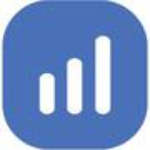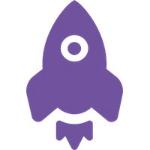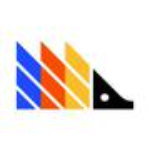List of Best Product Analytics Software
Showing 7 of 7 productsAmplitude is a software that helps businesses of all sizes to gain valuable insights into their user behavior and optimize their product performance. With its user-friendly interface analytics capabilities, Amplitude is the go-to tool for companies l...Read Amplitude Reviews
Fibotalk is a all-in-one communication solution for businesses. Streamline your teams communication, improve productivity, and enhance collaboration with Fibotalks intuitive and user-friendly platform. Say goodbye to multiple communication tools and...Read Fibotalk Reviews
June is a software designed to streamline your business processes and boost productivity. With its user-friendly interface features, June is a solution for managing tasks, projects, and teams with ease. Say goodbye to complicated systems and hello to...Read June Reviews
LogRocket is a tool that takes user experience monitoring to a whole new level. With its advanced session replay, error tracking, and performance monitoring, LogRocket provides unrivaled visibility into your website or application, helping you identi...Read LogRocket Reviews
PostHog is a powerful, intuitive and user-friendly analytics platform that helps businesses make informed decisions. With its advanced features and easy-to-use interface, PostHog allows users to gather and analyze data effectively, giving them deep i...Read PostHog Reviews
Pendo.io is a software that puts the power of understanding customers at your fingertips. Its intuitive design and user-friendly interface allow businesses of all sizes to gather real-time insights and make data-driven decisions. Elevate your custome...Read Pendo.io Reviews
LaunchDarkly is a feature management tool that allows development teams to control, test, and incrementally distribute software features via feature flags. It allows for secure and flexible feature releases, speedy rollbacks, and targeted rollouts to...Read LaunchDarkly Reviews
- What Is Product Analytics Software?
- Top Reasons Why Businesses Need Product Analytics Software?
- What Are the Top Key Features of Product Analytics Software?
- What Are the Top Benefits of Product Analytics Software?
- What Are the Steps to Choose the Right Product Analytics Software?
- What Are the Types of Product Analytics Software for Different Industries?
- What Are the Technology Trends for Best Product Analytics Software?
- What Are the Deployment Options for Product Analytics Software?
What Is Product Analytics Software?
Product analytics software analyses the performance of a product, service, organization, person, or anything else that can be assessed. This type of software's analytics provides a deeper understanding of the product, allowing for more informed judgments and guiding future product development.
Product analytics tools collect information on a product or service from numerous sources. This data is then analysed to see how the product or service is working, how people use it, how it compares to other comparable products, and even what areas want development.
This programme has the potential to give the user with crucial information into a product's or service's success or failure. This information can be utilized to boost customer happiness and engagement. Organisations can use the best product analytics tools to find the most effective ways to achieve their goals and fine-tune their stategy.
Top Reasons Why Businesses Need Product Analytics Software?
1. Determine product success: The best product analytics software provides metrics to assist in determining how successful a product is and whether it is meeting the needs of customers.
2. Gather consumer feedback: Product analytics tools can provide valuable feedback on customer thoughts about a product, which can be utilized to improve design and marketing efforts.
3. Identify user patterns: Analysing user behavior assists organizations in understanding how their consumers use their products, allowing patterns of customer interaction to be found and addressed.
4. Improve pricing strategies: Product analytics enable organizations to follow client purchasing habits and better adapt price plans.
5. Monitor sales performance: Product analysis tools provide information on how well a product sells and where its best performance occurs, enabling for better decision-making.
6. Track the success of product updates: Product analytics assist firms in determining how effective product updates have been and what modifications need to be made for future updates.
7. Compare product performance to competitors: Product analytics can help businesses understand how their product performance compares to other items on the market, generating useful information.
8. Find new markets: The best analytics tools also help firms examine customer behavior to determine which demographics are most likely to purchase their product, allowing them to target appropriate markets.
9. Identify client categories: Product analytics may be used to identify different consumer segments based on their usage patterns, allowing organizations to better target specific customers.
10. Analyse consumer interaction: Product analytics provide data on user involvement with the product, helping firms find the most effective strategies to retain client loyalty.
11. Identify chances for improvement: Companies can utilize product analytics to assess the success of product improvements and determine which areas require improvement.
12. Monitor customer retention rate: Product analytics software may assist organizations in measuring the rate at which customers retain their products, allowing them to develop strategies to increase customer retention.
13. Monitor customer service performance: Top product analytics tools provide insight into how successfully customer service team members are doing their duties, helping firms to improve.
14. Analyse customer lifetime value: Product analytics assist firms in understanding the worth of various client segments and using that data to better marketing and sales practices.
15. Develop customer strategy: Product analytics assist firms in developing informed strategies to better engage and retain customers, hence enhancing overall product success.
What Are the Top Key Features of Product Analytics Software?
The key features of product analytics software include:
1. Comprehensive dashboards and reports: Product analytics tools provides complete dashboards and reports that enable product managers to easily examine, analyze, and act on data about product usage.
2. Customer segmentation: It helps product managers categorize customers, define customer characteristics, and provide thorough reports.
3. Usage tracking: Product analysis tools enable product managers to analyze user behavior and track key product usage data such as feature uptake, frequency of usage, session duration, and so on.
4. Funnel tracking: The best analytics tools enable product managers to track user behaviors towards specified business targets, measure conversion rates, and discover the most successful customer journeys.
5. Cohort analysis: It allows product managers to analyze customer data and track the performance of their products over time.
6. Behavioral analytics: Product analytics software enables product managers to analyze customer and user behavior to spot trends, generate useful insights, and make sound decisions.
7. Benchmarking and comparisons: It assists product managers in comparing usage, trends, and data across various user segments and versions.
8. Alerts and notifications: When critical metrics surpass particular levels, top product analytics tools send out automatic notifications.
9. Export capabilities: Product analytics tools allow product managers to export consumption statistics in a variety of forms for further examination.
10. Customizable visuals: The top product analytics software enables product managers to simply customise charts, compare cohorts, and insert any information into predefined dashboards.
What Are the Top Benefits of Product Analytics Software?
1. Improved Decision Making: Product analytics software gives actionable data that can assist businesses in making sound decisions. It can provide a comprehensive view of customer, market, and product performance by collecting and analysing data from numerous sources.
2. Enhanced Product Development: The best product analytics software can assist in identifying crucial features that should be added or eliminated to better fulfil the expectations of customers. Organisations can release more effective goods armed with such information.
3. Increase Revenue Opportunities: By studying customer usage and behaviour trends, product analytics tools can find new revenue opportunities. This data can be used by businesses to find lucrative prospects such as upsell and cross-sell chances.
4. Streamlined Operations: Certain operations, such as data aggregation and analysis, can be automated using product analytics tools. Organisations will be able to streamline operations, saving time and money.
5. Reduced Customer Attrition: Organisations can reduce customer attrition by better understanding consumer behaviour and preferences. The best product analytics tools can assist them in identifying client demands and providing more personalised experiences.
6. Improved Customer Support: By supplying customer data such as purchase history and product usage information, top product analytics tools can provide prompt and accurate customer support. This will enable organisations to respond to client concerns and requirements more swiftly.
What Are the Steps to Choose the Right Product Analytics Software?
1. Gather feedback to determine business goals and requirements: Inquire with existing customers, stakeholders, and other key individuals about your present product analytics requirements.
2. Research software options: Make a list of the various software solutions available to you using online search and review sites. Contrast features, pricing, and customer service.
3. Test the software: Use trial copies or demos of the product to see how well it meets your requirements. Take notice of how easy it is to integrate with your existing data sources and how user-friendly the UI is.
4. Compare vendor ratings: Request references from current and previous clients and study online reviews.
5. Evaluate the cost: Consider both the initial and long-term expenditures, such as membership fees, training, and customization.
6. Finalize your selection: Examine the features and benefits of each choice and select the one that best meets your needs.
What Are the Types of Product Analytics Software for Different Industries?
Product analytics software can be divided into three main types, based on the type of business and the industry in which it is used:
1. B2C Analytics Software: Data from consumer products and services is monitored and analyzed using Business-to-Consumer product analytics tools. It is useful for tracking customer behavior and preferences, identifying trends in consumer interactions, and gaining insights into customer segmentation.
Mixpanel and Google Analytics are two examples of B2C analytics software.
2. B2B Analytics Software: Business-to-Business Analytics Software is intended for companies that sell goods and services to other businesses. It can be used to uncover pricing inefficiencies, gauge consumer loyalty, and track targeted marketing activities. IBM Watson and Salesforce are two examples of B2B analytics software.
3. Industry-Specific Analytics Software: The product analytics tools are tailored to specific industries such as healthcare, banking, and retail. It is targeted to these industries' data demands, allowing firms to collect and analyze data particular to their industry. Microsoft Power BI and Tableau are examples of industry-specific analytics tools.
What Are the Technology Trends for Best Product Analytics Software?
Predictive analytics, machine learning, data mining, data visualization, and trend forecasting are some of the technology developments for top product analytics software. Predictive analytics enables software to detect patterns in data and comprehend user behavior to forecast future trends.
To execute complicated analytics, machine learning software extracts patterns and insights from enormous volumes of organized and unstructured data sources. The practice of collecting usable insights from huge structured and unstructured databases using a variety of techniques is known as data mining.
Data visualization aids in the creation of data-rich graphical representations of data that can be used to detect trends in large datasets. Trend forecasting entails determining patterns using a variety of analytical methodologies, allowing users to better understand and predict client behavior.
What Are the Deployment Options for Product Analytics Software?
When it comes to deploying product analytics tools, there are a variety of options depending on the type of product and the desired outcome from using the software.
Some of the options include:
1. Hosted: When the top product analytics software is hosted on a remote server located outside of the customer's own data center, it is referred to as a hosted deployment. This deployment eliminates the requirement for actual hardware installation, and the program is available via the Internet.
2. Cloud: Another alternative is to deploy to the cloud. The computer platform for this type of deployment is provided by cloud service providers. Customers can pay for their best product analytics tools on a per-user basis with cloud deployments because they are convenient and scalable.
3. On-premises: The third alternative is to deploy the software on-premises. This deployment method necessitates the customer installing the product analytics software on their premises. The advantage of on-premises deployments is that the customer has complete control over the product and access to all accessible capabilities.
Whatever deployment method is chosen, the product analysis tools should be chosen based on their capabilities, pricing, and customization flexibility. It is critical to ensure that the product meets the customer's needs while also keeping the customer's budget in mind.







